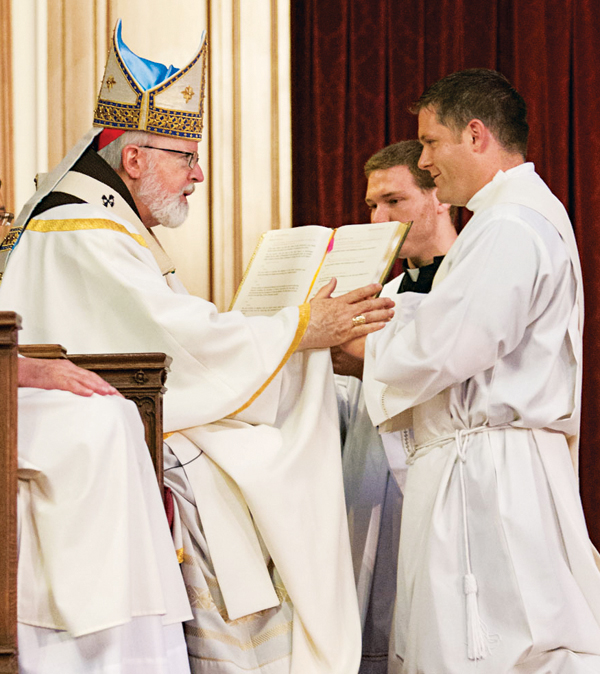Overhauling the Archdiocese of Boston
 Cardinal Seán Patrick O’Malley ordaining Eric Cadin as a new priest of the Archdiocese of Boston. (Photo by Gregory L. Tracy)
Cardinal Seán Patrick O’Malley ordaining Eric Cadin as a new priest of the Archdiocese of Boston. (Photo by Gregory L. Tracy)
Last week, Cardinal Seán O’Malley announced a new structure for the Archdiocese of Boston. Instead of having priests assigned to individual parishes, the Church will use 135 “pastoral service teams” of priests, deacons, and lay people to oversee the church’s remaining 288 parishes. It was a widely expected decision—I mentioned it in my story for this month’s issue about the recovery of the Archdiocese—but it doesn’t make it an easy one for the Church. The days of one pastor leading a parish for years are gone.
Cardinal O’Malley, certainly, had little choice in the matter: He has too few churchgoers, too few clergy members, and too many parishes. The last time he tried to deal with a similar problem was back in 2004, when he decided to close 65 parishes, or around 20 percent of all Archdiocese parishes. That decision caused wide protests, including sit-ins to prevent parish closings. Another round of parish closings would only trigger more outrage.
The decision to switch to pastoral teams has been received with what I’d call cautious optimism. A survey conducted by the Archdiocese showed that two-thirds of pastoral and lay leaders believed that the choice was a move in the “right direction” or “close to the right direction.” Still, a third were neutral or saw it as the “wrong direction.”
I’d offer another option: It was the only direction that Cardinal O’Malley could take. After all, most traditional business options are closed to him. If he was a food industry magnate, for example, and was experiencing low sales at his 288 restaurants, as well as a difficulty in attracting workers, he’d close up the restaurants with the lowest sales, and move his remaining workers to the outlets with the highest sales. It’d be a simple examination of the books.
But the Archdiocese is not like a McDonald’s—each individual parish is a source of people’s history, family, spirituality, and religion. And the closures didn’t work last time. If the pastoral teams don’t succeed, the Archdiocese is going to run out of options for its future.


